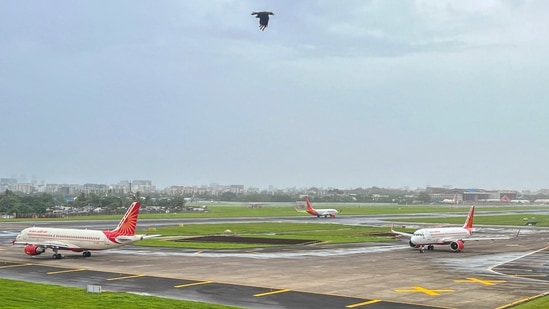A few days ago, Akasa Air started flights to Abu Dhabi from Mumbai – which became the second international destination for the airline. Starting next week, Air India Express is adding flights to Abu Dhabi from Mangalore, When it is time to add flights for others, how can market leader IndiGo stay silent? The airline has announced the addition of 14 weekly flights to Abu Dhabi with a daily flight from Mangalore, four times a week from Trichy and thrice a week from Coimbatore. The flights are operational from August 09, 11 and 10 respectively. The airline is also adding flights from Bengaluru to Abu Dhabi starting August 01, 2024.

Between April and September this year, connectivity between India and Abu Dhabi would have gone up by 75 frequencies per week, offering an additional 12,700 weekly seats each way. At the beginning of September, the India – Abu Dhabi market will see 403 weekly departures each way with 77050 weekly seats on offer each way, with six airlines operating the route and connecting Abu Dhabi with 17 points in India, according to data shared by Cirium – an aviation analytics company, exclusively for this article.
In an era where bilateral rights are the bone of contention, India and UAE have a region-specific Bilateral Air Services Agreement (BASA) i.e. a separate agreement with Dubai, Abu Dhabi, and Sharjah amongst others and not with UAE as a whole. Abu Dhabi was a major beneficiary of additional seats when Etihad – the flag carrier invested in Jet Airways in 2013. The entitlement from each side went up to 50,000 seats per week from 13,300 in a matter of three years. Jet Airways went down and so did many other investments of Etihad, but the entitlement gives Etihad a huge boost in the Indian market.
Also read: What to expect in the MAX 8 which IndiGo will operate to Doha?
How does the market stack up?
Carriers from Abu Dhabi will operate 61% of frequencies and offer 62% of all seats between India and Abu Dhabi. Indian carriers will operate just 160 weekly frequencies. Etihad is the largest carrier between the two, operating 43% of all frequencies and offering 45% of all seats. The second largest is IndiGo and also the largest from the Indian side with 89 weekly frequencies (21%) and 16574 weekly seats (21%). Air Arabia Abu Dhabi is third with 72 weekly frequencies (17%) and 12528 weekly seats (16%).
Amongst cities, Mumbai leads with 63 weekly departures, followed by Kochi with 53 weekly departures to Abu Dhabi, Chennai is third with 37 weekly flights.
Also read: Explained: How the Microsoft-CrowdStrike IT outage hurt airlines worldwide
Why is Abu Dhabi the flavour of the season?
One would wonder why there is a sudden rush to fly to Abu Dhabi. The answer has multiple facets. Even at its peak of collaboration with Jet Airways, the India – Abu Dhabi market had fewer seats on offer. Almost all markets have grown out of India as air traffic has seen a steady increase. However, with Dubai’s bilaterals at its peak and Dubai along with Abu Dhabi becoming a tourist hot spot, Abu Dhabi has started serving as an alternate airport to Dubai as well.
Indian carriers, which were once ridiculed for not operating international flights, are now closer to limits of operations under multiple bilateral agreements like those to Vietnam or Indonesia. Until these limits are renegotiated, there will remain a challenge to operating in international sectors. For IndiGo, which does not like to lose its numero uno position in most markets, this could well be a reactionary stance to offer the Abu Dhabi market a wider reach when Air India Express and Akasa Air are adding flights.
Flying internationally helps ticket sales in foreign currency which acts as a buffer for fluctuating currency since aircraft leases are mapped in USD. The taxation on fuel for international operations is different from domestic, giving better returns.
Lastly, most Indian metros are slot-constrained and airports are selectively releasing slots for international operations since it earns them more revenue. This pushes the airlines to opt for international flight operations as a preferred choice.
Also read: More passengers are impacted by delayed flights than ever before, shows data
Tail Note
Emirates and Dubai have been pushing for more seats between India and Dubai. The current position between India and Abu Dhabi sees the UAE side nearly exhaust its quota, while the Indian side has a long runway to reach there. Traffic between the two countries is growing steadily and Emirates and Etihad, are both focused on carrying Indian passengers to the world via Dubai and Abu Dhabi respectively. This means that the local traffic is being carried largely by Indian carriers and there lies the answer to a sudden surge in flights.
Are these sustainable or will it lead to a fare war? Lately, price wars have been far and few but in any market where capacity is added this frequently, never say never!
Ameya Joshi is an aviation analyst.
